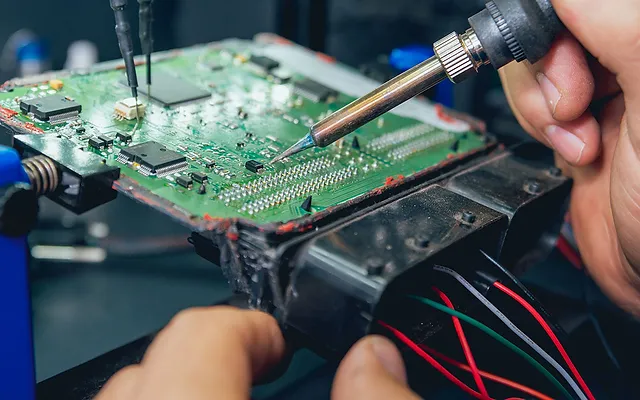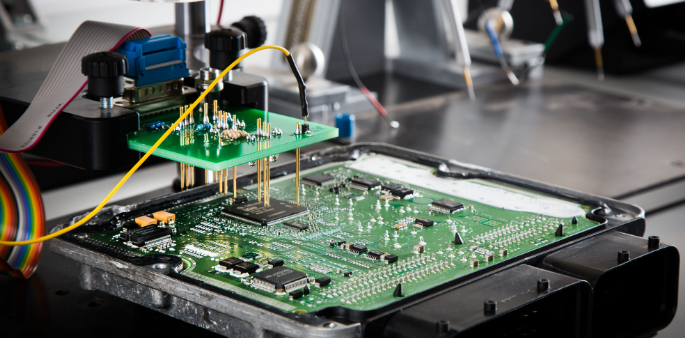The Impact of ECU Remapping on Fuel Efficiency
In the world of automotive performance enhancements, ECU remapping stands as one of the most powerful tools for unlocking a vehicle’s true potential. Electronic Control Unit (ECU) remapping, also known as chip tuning or engine tuning, involves modifying the factory settings of a vehicle’s engine control system to optimize performance, improve fuel efficiency, and enhance drivability. While enthusiasts and car owners seek ECU remapping for increased power and torque, one crucial aspect to consider is its impact on fuel efficiency. In this comprehensive blog post, we will explore the impact of ECU remapping on fuel efficiency, examining how this performance enhancement can affect a vehicle’s fuel consumption and overall eco-friendliness.
1. Understanding ECU Remapping
Before delving into the impact on fuel efficiency, it is essential to grasp the fundamentals of ECU remapping. The ECU is the central brain of a modern vehicle, monitoring various sensors and adjusting engine parameters to ensure optimal performance under different driving conditions. During remapping, the software in the ECU is modified, altering engine settings such as fuel injection timing, air-to-fuel ratios, ignition timing, and turbo boost pressure. These adjustments optimize the engine’s performance, potentially affecting fuel efficiency in different ways based on the tuning approach.
2. Potential Improvements in Fuel Efficiency
ECU remapping, when performed optimally, has the potential to improve fuel efficiency. By fine-tuning the engine’s performance parameters, remapping can enhance combustion efficiency, reduce engine friction, and optimize fuel delivery. This improved efficiency means that the engine requires less fuel to produce the same amount of power, leading to better fuel mileage and lower fuel consumption.
3. Enhanced Torque Delivery
One of the key benefits of ECU remapping is the enhancement of torque delivery across the engine’s RPM range. With optimized torque delivery, the engine can maintain better power output at lower RPMs, reducing the need for frequent gear changes and allowing drivers to drive at lower engine speeds. This, in turn, can lead to reduced fuel consumption during everyday driving scenarios.
4. Improved Throttle Response
ECU remapping can also improve throttle response, reducing the lag between pressing the accelerator pedal and the engine’s response. This enhancement results in smoother acceleration and more precise power delivery, which can lead to better fuel efficiency when driving in stop-and-go traffic or urban environments.
5. Eco-Tuning for Fuel Efficiency
Some ECU remapping services offer eco-tuning options that focus on improving fuel efficiency without sacrificing performance. Eco-tuning involves carefully calibrating the engine map to prioritize fuel economy while maintaining a reasonable level of power. By optimizing fuel delivery and ignition timing, eco-tuning aims to maximize fuel efficiency under normal driving conditions.
6. Potential Negative Impact on Fuel Efficiency
While ECU remapping can positively impact fuel efficiency when done correctly, there is also a potential negative impact if not performed responsibly. Overly aggressive remapping that prioritizes performance gains over fuel economy may lead to increased fuel consumption. Additionally, if the vehicle is driven more aggressively with the newfound power, fuel efficiency may decline.
7. Vehicle and Driving Conditions
The impact of ECU remapping on fuel efficiency can vary based on the vehicle’s make and model, its engine type, and driving conditions. Some engines respond more positively to remapping, while others may not show substantial gains in fuel efficiency. Additionally, driving habits play a significant role in determining fuel consumption. Aggressive driving, frequent hard accelerations, and high-speed driving can offset the potential fuel efficiency gains achieved through remapping.
8. Real-world Testing and Data Logging
To accurately assess the impact of ECU remapping on fuel efficiency, real-world testing and data logging are crucial. Professional tuners often conduct comprehensive tests to evaluate the changes in fuel consumption after remapping. These tests involve measuring fuel consumption under various driving conditions and comparing the results with the pre-remap data.
Conclusion
ECU remapping can have a significant impact on a vehicle’s fuel efficiency when performed correctly and responsibly. Optimized engine maps can lead to better fuel mileage, improved torque delivery, and enhanced throttle response. However, it’s essential to choose a reputable and experienced tuning service to ensure that the remap is tailored to prioritize fuel efficiency while maintaining engine reliability and performance. Additionally, drivers must adopt fuel-efficient driving habits to maximize the benefits of ECU remapping. By striking the right balance between performance and fuel efficiency, ECU remapping can offer car owners the best of both worlds—a more responsive and powerful engine with reduced fuel consumption and a smaller carbon footprint.
Related Courses
- Webinar
- Includes Certificate
- Webinar
- Includes Certificate
- Webinar
- Includes Certificate







